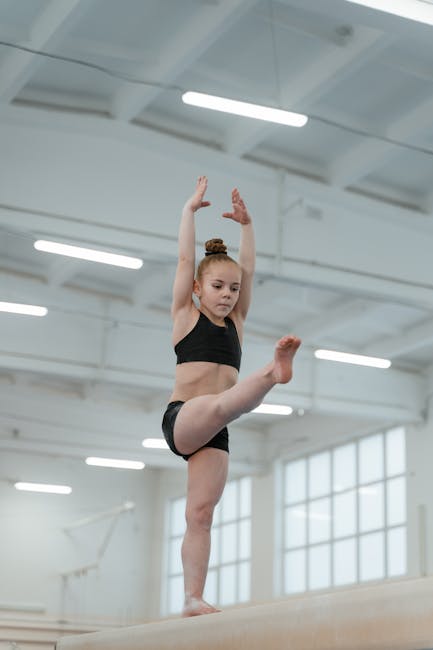Athletes, are you looking to boost your performance? The secret may lie not just in physical training but also in honing your mental skills. This blog post will guide you on how to improve your performance through mental training and focus. So, why should you keep reading? Because this could be the game-changer you’ve been looking for!
Key Takeaways
- Mental training is as crucial as physical training for athletes.
- Positive self-talk and mindfulness are key strategies for mental training.
- Regular practice and consistency are vital for effective mental training.
Introduction to Mental Training for Athletes
Importance of mental training in enhancing athletic performance
Mental training is an often overlooked aspect of athletic performance. However, it plays a crucial role in an athlete’s success. It helps in managing stress, improving focus, and boosting confidence, all of which are essential for optimal performance.
Overview of key strategies: positive self-talk and mindfulness
Two key strategies for mental training are positive self-talk and mindfulness. These techniques help athletes maintain a positive mindset and stay focused during training and competition.
Understanding and Utilizing Positive Self-Talk
Definition of self-talk
Self-talk is the internal dialogue that goes on in our minds. It significantly influences our performance. There are two types of self-talk: motivational and instructional.
Internal dialogue influencing performance
Our internal dialogue can either boost or hinder our performance. Positive self-talk can enhance our confidence and focus, while negative self-talk can lead to performance anxiety.
Types: motivational and instructional
Motivational self-talk involves using positive affirmations to boost confidence and motivation. Instructional self-talk, on the other hand, involves talking oneself through the steps of a task to improve focus and execution.
Benefits of positive self-talk
Enhances confidence and focus
Positive self-talk can significantly enhance an athlete’s confidence and focus. It helps in maintaining a positive mindset, which is crucial for optimal performance.
Reduces performance anxiety
Positive self-talk can also help in reducing performance anxiety. It helps athletes manage their nerves and stay calm under pressure, which is essential for performing at their best.
Techniques for improving self-talk
Using first-person perspective or personal names
One technique for improving self-talk is to use the first-person perspective or personal names. This helps in creating a more personal and positive internal dialogue.
Specific affirmations related to performance goals
Another technique is to use specific affirmations related to performance goals. This helps in maintaining focus and motivation towards achieving these goals.

Implementing Meditation and Mindfulness
Meditation for athletes
Meditation is a powerful tool for athletes. It promotes relaxation and concentration, and aids in stress management. You can learn more about it in this guide on meditation for focus and concentration.
Promotes relaxation and concentration
Meditation helps in promoting relaxation and concentration. It helps athletes stay calm and focused, which is crucial for optimal performance.
Aids in stress management
Meditation also aids in stress management. It helps athletes manage their stress levels, which can significantly impact their performance.
Mindfulness practices
Mindfulness involves maintaining a moment-by-moment awareness of our thoughts, feelings, bodily sensations, and surrounding environment. It helps in maintaining present-moment focus and reduces distractions. You can learn more about it in this guide on practicing mindfulness.
Helps maintain present-moment focus
Mindfulness helps athletes maintain present-moment focus. It helps them stay in the zone and perform at their best.
Reduces distractions and improves performance under pressure
Mindfulness also helps in reducing distractions and improving performance under pressure. It helps athletes stay calm and focused, even in high-pressure situations.
Integration into daily training
Routine mindfulness exercises
Incorporating routine mindfulness exercises into daily training can significantly enhance an athlete’s performance. It helps in improving focus and reducing distractions.
Mindfulness during practice and competition
Practicing mindfulness during practice and competition can also be beneficial. It helps athletes stay in the zone and perform at their best.

Practical Tips for Effective Mental Training
Developing a routine for mental training
Regular practice of self-talk and mindfulness
Developing a routine for mental training involves regular practice of self-talk and mindfulness. This helps in maintaining a positive mindset and staying focused.
Integration with physical training sessions
Mental training should also be integrated with physical training sessions. This helps in enhancing both physical and mental performance.
Monitoring and adjusting strategies
Keeping track of mental state and performance
Monitoring and adjusting strategies involve keeping track of one’s mental state and performance. This helps in identifying areas for improvement and adjusting techniques as needed.
Adjusting techniques as needed based on outcomes
If a particular technique is not yielding the desired results, it should be adjusted. This helps in ensuring that the mental training is effective and beneficial.
Importance of consistency and patience
Long-term commitment to mental training
Mental training requires a long-term commitment. It is not a one-time thing but a continuous process that requires regular practice and consistency.
Expecting gradual improvement
Improvement in mental skills does not happen overnight. It is a gradual process that requires patience and persistence.

Conclusion: Impact of Mental Training on Athletic Performance
Recap of mental training techniques and their benefits
Mental training techniques such as positive self-talk and mindfulness can significantly enhance an athlete’s performance. They help in improving focus, reducing distractions, managing stress, and boosting confidence.
Encouragement for athletes to adopt mental training practices
Athletes are encouraged to adopt mental training practices. These practices can be a game-changer, helping athletes perform at their best and achieve their goals.
Final thoughts on the role of mental resilience in sports success
Mental resilience plays a crucial role in sports success. It helps athletes overcome challenges, stay focused, and perform at their best. So, athletes, are you ready to take your performance to the next level with mental training? Start today, and see the difference it can make!
For more insights on enhancing athletic performance, check out our guide on neurofeedback and peak performance training. You can also explore our articles on focus and concentration for more tips and strategies.
Remember, the mind is a powerful tool. Train it well, and it can take you places!
(source: Positive self-talk for athletes, Meditation for athletes)
Unlock Your Peak Performance: Exploring Mental Training and Focus FAQs for Athletes
What is mental training in the context of athletic performance?
Mental training for athletes involves psychological techniques aimed at enhancing performance, coping with the pressures of competition, and increasing motivation and focus. Techniques such as visualization, goal setting, and mindfulness are used to improve concentration, confidence, and the ability to remain calm under pressure, ultimately leading to better performance outcomes.
How can visualization improve athletic performance?
Visualization, or mental imagery, involves creating a mental image of achieving success in your sport, including imagining the environment, your movements, and the positive outcome. This technique enhances neural pathways in the brain associated with the physical performance of the sport, improving muscle memory, confidence, and the ability to execute skills under pressure, similar to physical practice.
Can mindfulness and meditation really make a difference in sports?
Yes, mindfulness and meditation can significantly impact athletic performance by enhancing focus, reducing stress and anxiety, and improving emotional regulation. These practices help athletes stay present in the moment, allowing for better concentration on the task at hand and a reduction in the impact of distractions. This heightened state of awareness can lead to improvements in performance, recovery, and overall well-being.
What role does goal setting play in improving athletic performance?
Goal setting is crucial for athletes as it provides clear objectives to strive for, increases motivation, and enhances focus on the tasks necessary to achieve those objectives. Effective goal setting involves establishing specific, measurable, achievable, relevant, and time-bound (SMART) goals that guide athletes in their training and competition, helping them to monitor progress and maintain motivation over time.
How important is mental resilience for athletes, and how can it be developed?
Mental resilience is essential for athletes to overcome challenges, setbacks, and failures encountered in sports. It can be developed through techniques such as positive self-talk, stress management, and facing challenging situations head-on. Building a support system of coaches, teammates, and mental health professionals can also contribute to enhancing an athlete’s resilience.
What are some common mental blocks athletes face, and how can they overcome them?
Common mental blocks include fear of failure, performance anxiety, and loss of focus. Overcoming these blocks involves strategies such as cognitive restructuring to challenge negative thoughts, relaxation techniques to manage anxiety, and mindfulness to maintain focus. Regular mental training and seeking support from sports psychologists can also be effective in overcoming these obstacles.
How does stress affect athletic performance, and what can be done to manage it?
Stress can negatively impact performance by causing anxiety, decreasing focus, and leading to physical symptoms such as increased heart rate and muscle tension. Managing stress involves techniques such as deep breathing, progressive muscle relaxation, and mindfulness. Developing a pre-performance routine that includes these techniques can help athletes manage stress and perform at their best.
Can mental training techniques be used for team sports as well as individual sports?
Absolutely, mental training techniques are beneficial for both team and individual sports. In team sports, these techniques can enhance communication, teamwork, and collective focus, while in individual sports, they can improve concentration, motivation, and stress management. Tailoring the techniques to meet the specific needs of the sport and the athletes involved is key to maximizing their effectiveness.



